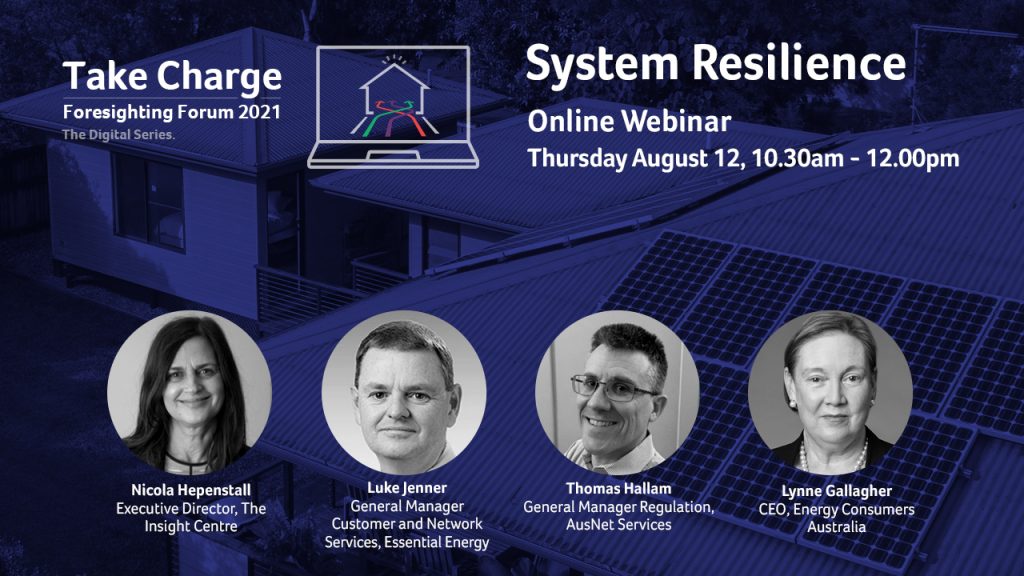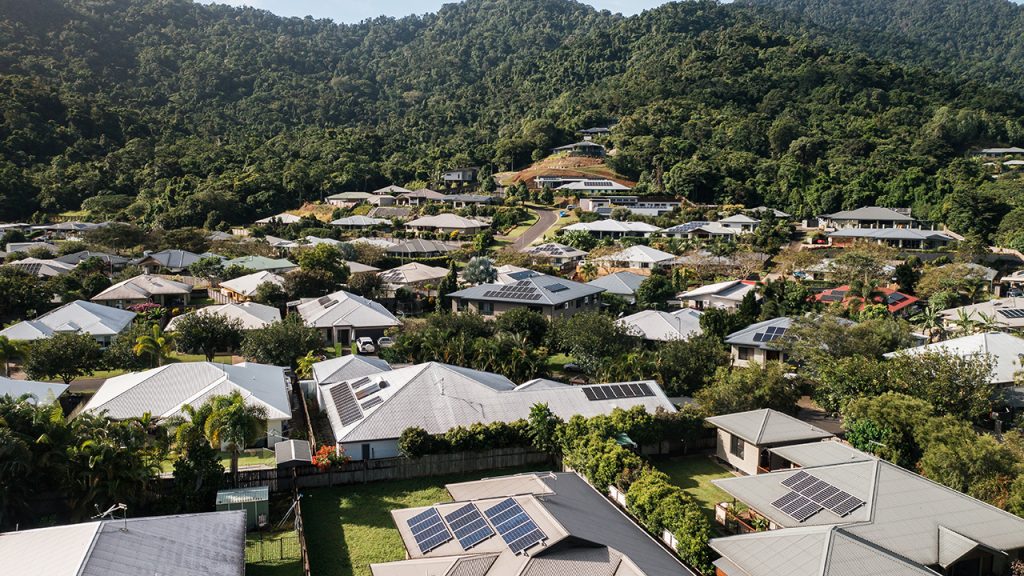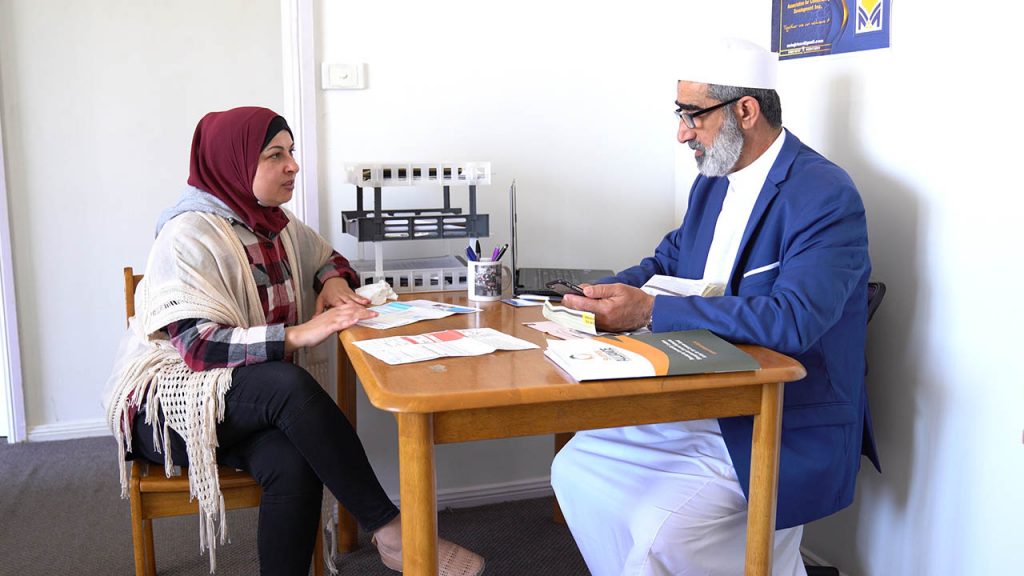If you would like to subscribe to the Energy Consumers Australia mailing list please click here.
From the CEO
Dear Readers,
I did not think that when I referenced the hard lockdown in Sydney and elsewhere around Australia in my previous newsletter, that we’d still be living under it a month later (and that more Australian capital cities would have joined us in enduring similar restrictions.) In our first Foresighting Forum webinar on July 1, Dr Helen Rogers from the Australian Bureau of Statistics spoke about the need to go beyond our business as usual approach. This is my continued ask of retailers: keep up the focus on customer support. The Australian Energy Regulator (AER) adapted their Statement of Expectations to apply in the current circumstances but many consumers are still paying more than they should for their energy. It's part of our mission to change that, by making it easier for consumers to engage with the system and make choices that work for their individual needs and circumstances.
For those that may be suffering financial hardship due to the lockdowns, there are free financial counselling helplines and chat services available to assist you. Our Consumer Resource page has more information on that plus a guide to speaking to your retailer to get a better deal on your energy service.

Foresighting Forum 2021: System Resilience
It is almost fitting that resilience is the topic of our next Foresighting Forum webinar, which will focus on how empowered communities and citizens at a local level are critical for surviving and recovering from crisis events as we try to move towards a more resilient future energy system. In advance of the webinar, we will be releasing 'The Connections That Matter" a research report which tracks community attitudes and sentiment around energy over the course of a year in East Gippsland, an area that was devastated by fire in early 2020. The webinar – on August 12 – will use this as the basis for a discussion about how we might we learn from this to better service such communities before, during and after crisis events. Ongoing planning, engagement and sharing of information between communities and industries can move residents of these high-risk areas from a focus on dependency and rescue to one of resilience, connection and empowerment.
For those of you who may have missed our first Foresighting Forum webinar, we were delighted to see over 250 key stakeholders join us, the Australian Bureau of Statistics and the Digital Energy Futures team from Monash University for a crucial conversation about the changing lifestyle and habits of consumers and whether our future energy system has allowed for these new needs and expectations. The Digital Energy Futures team has since released the key research unveiled at the webinar, which aims to help guide and inform energy forecasting, energy policy and demand management programs. We invite you to check out Future Home Life here.

The Energy Transitions
Speaking of our future energy system, Daniel Westerman, the new Chief Executive of the Australian Energy Market Operator (AEMO), laid out an ambitious goal in a recent speech to the Committee for the Economic Development of Australia (CEDA); an energy grid that can support 100% renewable energy by 2025. This, he said, would involve a transformation of the energy system but also a culture change in AEMO and beyond. I wrote a piece for RenewEconomy where I highlighted his acknowledgement for “building social licence and acting collaboratively”, signalling that working with consumers in the energy transition is high on their agenda. Earlier this year we issued a report that set forth a possible framework for those who make the rules or manage the system in obtaining that social licence – check out the webinar and supporting documents here.
This is also why we constantly reference that there are two separate energy transitions at play. As Elisabeth Ross explained in a recent bECAuse Blog, the first is the move from fossil fuel generation to renewable energy and the second is the people’s revolution. Consumers are changing the way they use and engage with energy, adopting new technologies and habits in their homes and small businesses. But while the two transitions are linked, they should not be treated the same way. As Elisabeth says, “…consumers can help provide solutions to the first transition, but behind the energy assets of the second transition are everyday people – not commercial investors.”
Some of this thinking, both around social licence and the role of consumers in the energy system, was the motivation behind a recent research report we conducted into consumer attitudes towards proposed changes to solar export pricing.
The high uptake of solar PV around Australia (which is a fantastic thing) has created unforeseen pressures on a system that was not designed to handle large amounts of electricity flowing both to and from individual consumers. As a result, some solar owners are being blocked from exporting energy at certain times and there is significant doubt regarding how the transmission and distribution system will be able to accommodate the three million additional rooftop solar owners who are expected over the next decade. The proposed changes that will soon be decided by the Australian Energy Market Commission (AEMC) are designed to tackle this issue of “solar overload’’ during times when there is plentiful solar energy being produced and exported but relatively little energy consumed. As this is a key issue for consumers and our future energy system in general, we commissioned this research to ask Australians what they think so that we could offer an independent, evidence-based view to inform the debate. I spoke to Fran Kelly on ABC Radio to explain our research results and the rule changes which will be decided on by the AEMC on August 12.

Backing Bright Ideas
An oft-neglected issue in the energy system is the divide between those who can invest in solar and other energy technologies and who cannot. Therefore, we were proud to award a grant to the Australian National University to increase the availability of rooftop solar systems to renters. This project is one of four approved by our Board last month and we look forward to seeing the impact of each venture in ensuring a more inclusive and consumer centered energy system.
Should you have a great idea that would help drive this change, our next grants round opens tomorrow (Aug 5) until September 2, 2021. For more information or to apply for a grant click here. As an example of an innovative idea at play, check out one of our Great Grant videos below where Joel Dignam from Better Renting explains how they are working to implement minimum energy efficiency requirements for rental properties.
Healthy Homes for Renters – minimum energy efficiency requirements for rental properties.
During July we made a submission to the AER on their Draft Ring-fencing Guideline version 3. We believe that all business models for storage should flourish - offering storage as a service as well as consumers being able to benefit from their own storage at their premise.
I was honoured to be invited to a number of very different speaking arrangements this past month. On July 13 I joined the UK House of Lords Industry and Regulators Committee to speak about energy consumer priorities in the transition to net zero and our role as consumer representatives in the Australian energy system. We are currently preparing a submission with our recommendations as they review the future role of the UK energy regulator Ofgem, watch the stream of the session here. I spoke at Australian Energy week on innovation in the retail space and I also took part in the ‘Great Debate’ during the Australian Competition and Consumer Competition (ACCC) and AER Regulatory Conference, unfortunately losing out to a very convincing ‘against’ side!
Finally, a shout out to my team who, as you can see by the volume of work mentioned here and below, have been pulling out all the stops (even through lockdown) to keep us operating at an extremely high level. It takes a village, and I can’t say thank you enough. In exciting news, we are welcoming two new Senior Policy Officers and a new Director to the crew this month – keep an eye on our social channels for more on that. Our new Graduate Policy Officers (meet them here) have also hit the ground running and are knocking it out of the park in navigating working from home, and learning the ins and outs of this complicated industry.
That’s all for this month, looking forward to seeing you online at our upcoming Foresighting Forum webinars and thank you for reading, we welcome your feedback as always here.
Stay safe,
Lynne Gallagher
Chief Executive Officer
